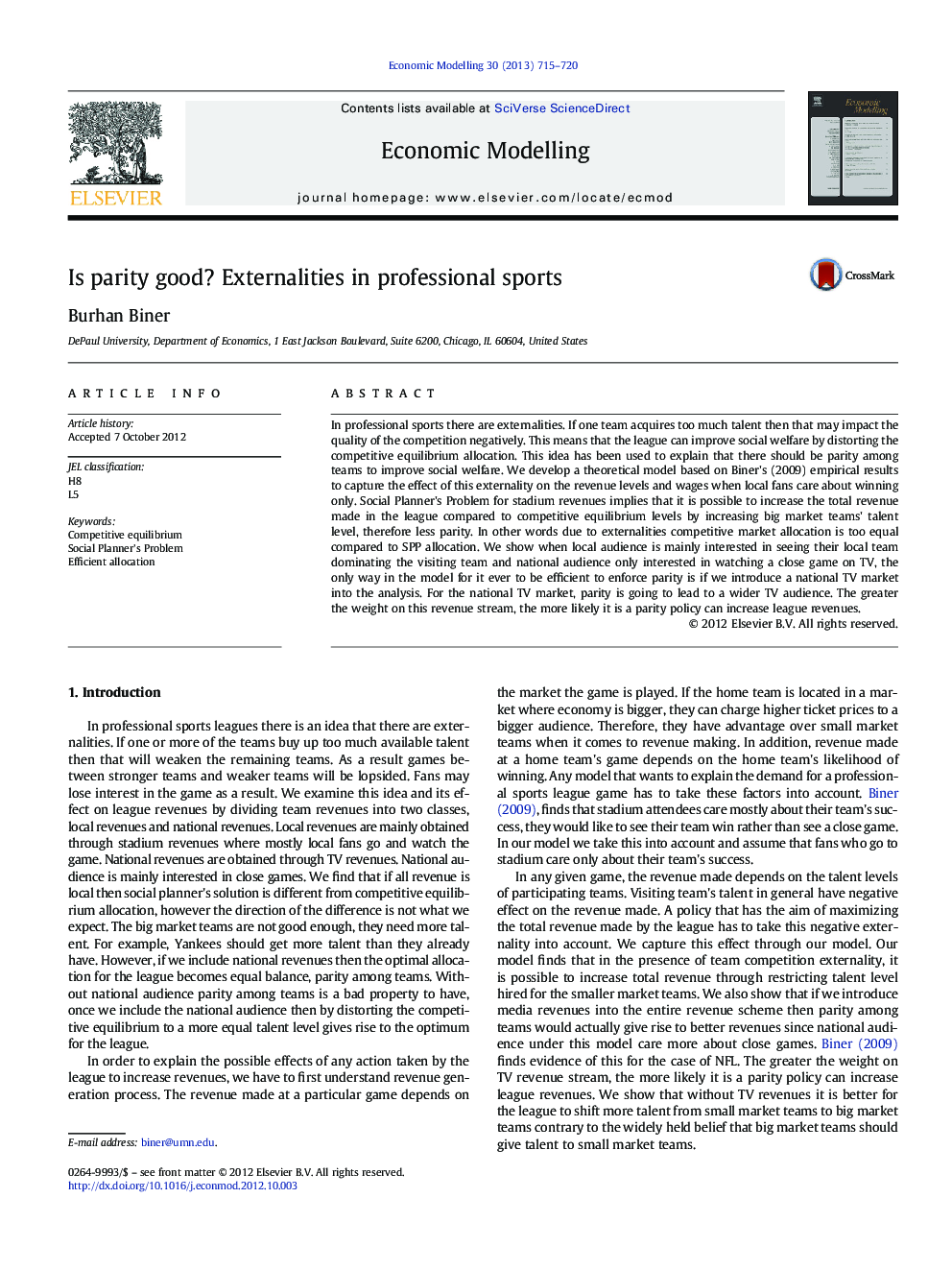| کد مقاله | کد نشریه | سال انتشار | مقاله انگلیسی | نسخه تمام متن |
|---|---|---|---|---|
| 5054755 | 1476538 | 2013 | 6 صفحه PDF | دانلود رایگان |
In professional sports there are externalities. If one team acquires too much talent then that may impact the quality of the competition negatively. This means that the league can improve social welfare by distorting the competitive equilibrium allocation. This idea has been used to explain that there should be parity among teams to improve social welfare. We develop a theoretical model based on Biner's (2009) empirical results to capture the effect of this externality on the revenue levels and wages when local fans care about winning only. Social Planner's Problem for stadium revenues implies that it is possible to increase the total revenue made in the league compared to competitive equilibrium levels by increasing big market teams' talent level, therefore less parity. In other words due to externalities competitive market allocation is too equal compared to SPP allocation. We show when local audience is mainly interested in seeing their local team dominating the visiting team and national audience only interested in watching a close game on TV, the only way in the model for it ever to be efficient to enforce parity is if we introduce a national TV market into the analysis. For the national TV market, parity is going to lead to a wider TV audience. The greater the weight on this revenue stream, the more likely it is a parity policy can increase league revenues.
⺠I examine the professional sports leagues under externalities. ⺠Revenues are earned through stadium revenues and TV revenues. ⺠Ticket buyers want their team to dominate, fans who watch on TV want close game. ⺠I find CE allocation is too equal compared to SPP allocation. ⺠Only with the introduction of TV revenues, parity among teams policy becomes efficient.
Journal: Economic Modelling - Volume 30, January 2013, Pages 715-720
